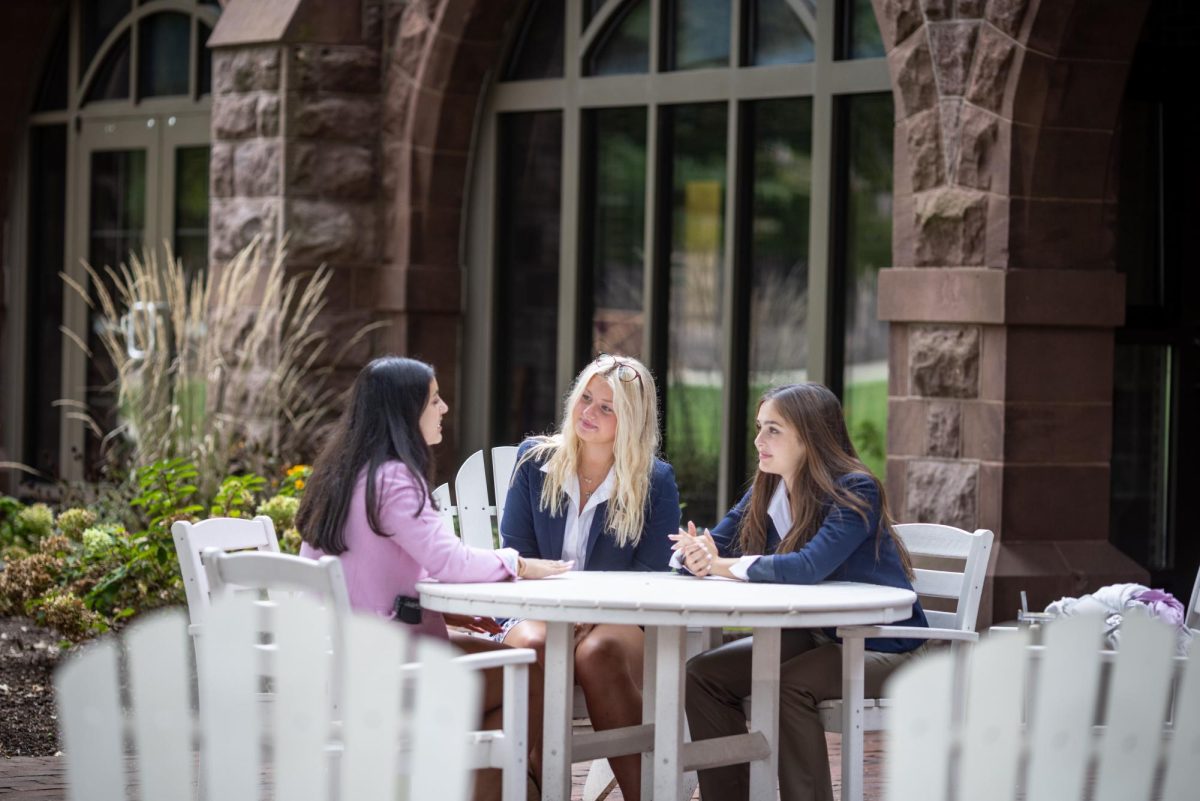This year celebrates the 25th anniversary of The Hill School transforming from an all-boys school to the co-educational institution it is today. Since this groundbreaking transition in 1998, The Hill School has gone on to grant numerous young women and faculty members the opportunity for an elite education.
Prior to this transformative shift, The Hill School took a firm stance to remain an all-boys school. From 1968 to 1973, significant discussion circulated about whether Hill should open its doors to young women. Yet, this extensive conversation mysteriously and abruptly ended at the end of 1973, after the resignation of Archibald Montgomery who was an active defender for coeducation. The succeeding headmaster, Charles Watson, refused to switch into coeducation. This eventually shelved the plan for another two decades.
At the same time, however, other preparatory schools in the went coeducational. In 1987, long-time rival The Lawrenceville School began enrolling and hiring female students and teachers, prompting The Hill to reconsider the idea. Predicting a loss in status and influence accompanied by weaker applicants, The Hill School finally unshelved the plan and opened its doors to women in 1998.
Several of today’s Hill faculty remember their time as students or faculty when the school went co-educational in the 1998–1999 school year. As the first and only female faculty member at the time in the history department, Kathryn Malone, Elizabeth B. Blossom Chair of Humanities and a graduate of Yale University’s fourth co-educational class, recalled that she was immediately drawn in by the newly established coeducation program at The Hill School. Along with Malone’s arrival on campus, her fresh experience in coeducation since her time at Yale taught her “the change and evolvement culture of coeducation at Yale.” In the past 25 years, Malone has drastically impacted the school: from coaching girls’ field hockey and lacrosse to directing Hill’s renowned Humanities program.
“If I’d been born three years earlier, opportunities for my educational career at Hill would have been impossible. Hill has thrived to become a welcoming, inclusive family,” Malone said.
The Rev. Anne Confer Martens ’02, Chair of the Religious Studies and Philosophy Department, also arrived at The Hill in the fall of 1999, the second year of Hill’s coeducational journey. Confer Martens said that “Hill would not still be around if it hadn’t gone co-ed.” Opening the doors to countless young women, however, has Hill to provide equal resources for both students and faculty alike of both genders to pursue their passions. Confer Martens believe that The Hill community is infused with a homely and supportive atmosphere allowing each member to express themselves.
Adversity served as a hallmark for the first women at Hill. When the Upper School dormitory, which now houses both boys and girls, used to be just a boys dorm, Malone witnessed girls walking by with timidity. Malone then argued with the board and reported that girls were estranged from the community when passing by the Upper School dorm. After many riveting disputes among the board of trustees, Hill changed Upper School from a boys dorm to the current co-ed dorm it is today. Malone claims that the change “has changed the culture of the quad evolutionarily.”
As a graduate of Hill’s class of 1998, Confer Martens’ brother was a strong defender against co-education. Nevertheless, over time, he became Confer Martens’ greatest supporter after being told about his sister’s enrollment.
Courtney Neese, one of the first female student on campus in 1998 and the current English Department Chair, recounts her experience at Hill as the few females as reflective.
“It was a transformative time, and, like with all big changes, there were a lot of growing pains. I remember watching the local news as the last single-sex 6th form class jumped into the Dell wearing tee shirts that said, ‘The last proud class.’ When we arrived on campus in the fall, we made tee-shirts that said, ‘The FIRST proud class.’”
Neese recounts her emotions witnessing the monumental transformation of Hill, further explaining the future of Hill as “a special one” with fresh female leaders on campus.
2023, like any other year for The Hill School, has brought many talented individuals to its campus, including the first female head of school, Kathleen Devaney. Prior to her arrival, Devaney was struck by the strong sense of community and the remarkable learning environment that was established long ago. Even though Devaney is still new to The Hill, she appreciates the opportunity as “an extension of a lifetime of being involved with young people and schools” that can be fortified through time.
“As the first female head of The Hill School, I feel a kinship with those first women. Those women from the early years were trailblazers in Hill’s journey as it grew into its coeducational self. All students who followed—and students who will follow—have benefited from that legacy,” Devaney expressed.
























